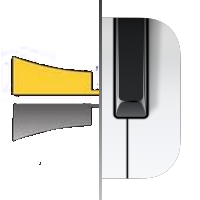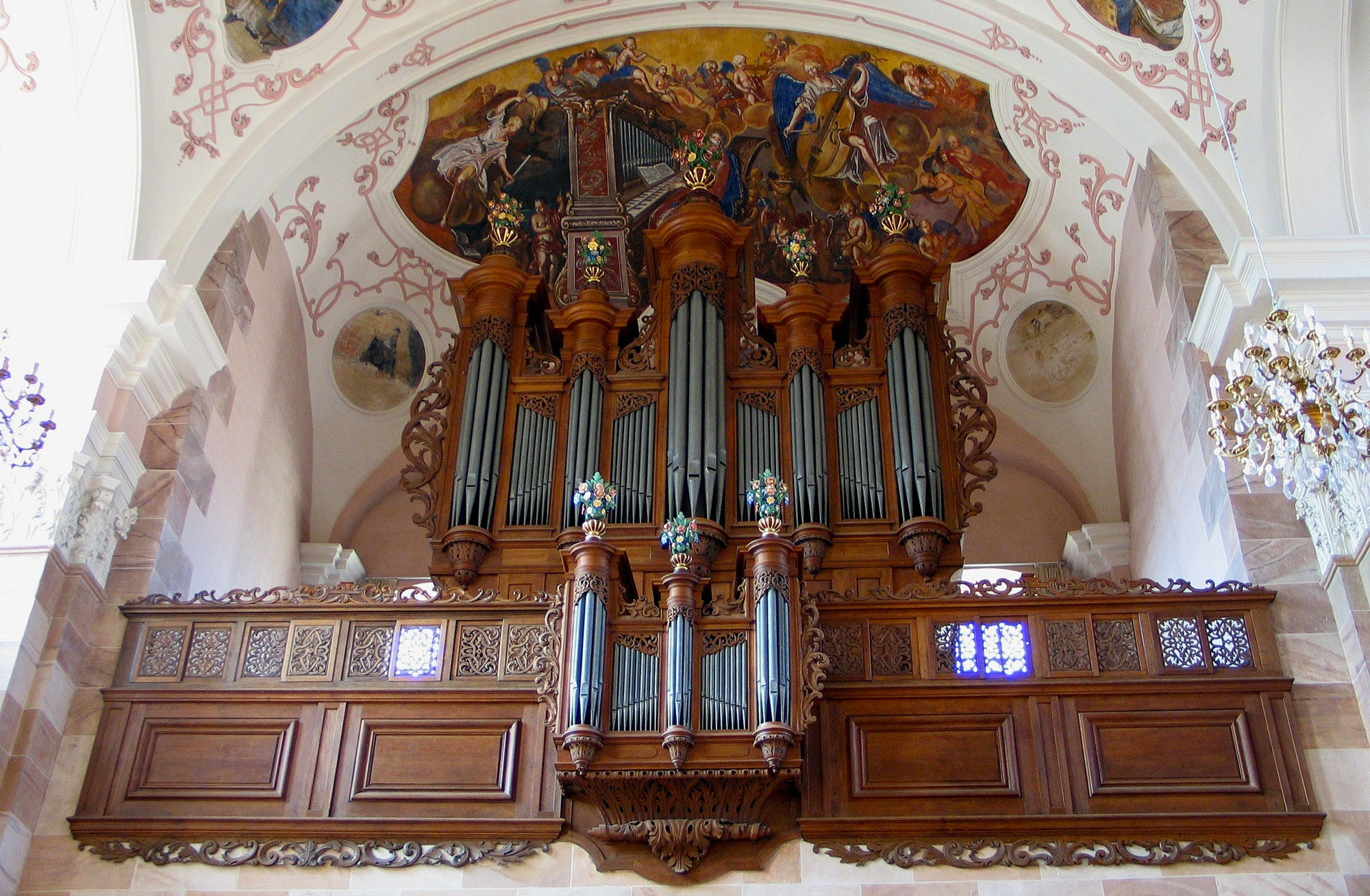Ebersmunster, Abbatiale Saint-Maurice
| Builder | A. Silbermann |
|---|---|
| Year | 1732 |
| Period/Style | Baroque |
| Stops | 29 |
| Keyboards | 3+P |
| Keyaction | tracker/mechanical |
| Sampleset |
Available
 , sampled by
OrganArt Media
, sampled by
OrganArt Media
|
The Andreas-Silbermann organ, installed in 1732 at the Abteikirche St. Maurice in Ebersmünster, Alsace, France, stands as a remarkable testament to the enduring quality and artistry of its maker. This organ is one of only two remaining instruments by Andreas Silbermann that are largely preserved in their original form. Constructed during the final phases of the church's architectural completion by Peter Thumb, a noted Baroque architect, the organ miraculously survived the French Revolution and subsequent wars, leading to its protection as a historic monument in 1971/72 along with the organ loft and case.
This instrument features three manuals and 29 stops, adhering to the French organ-building tradition with specifications such as Plein Jeu, Jeu de tierce, and Grand Jeu, yet incorporates a fully developed pedalboard in the German style, contrasting the typically shorter pedal range found in French Baroque organs. Its tonal design reflects a softer voicing compared to Silbermann’s earlier works, showcasing exquisite flutes, a Cornet, and vocal mixtures. Notably, the inclusion of a Quarte de Nazard in the Grand Orgue offers deep foundational registrations, blending French Baroque characteristics with a distinct "South German accent." After its comprehensive restoration in 1997-98, the organ is celebrated as one of Europe’s most valuable historical instruments, capable of authentically performing not just French but a broad range of European Baroque music. The church's acoustics, with a reverberation time of up to 5.5 seconds, further enhance its majestic sound.
This instrument features three manuals and 29 stops, adhering to the French organ-building tradition with specifications such as Plein Jeu, Jeu de tierce, and Grand Jeu, yet incorporates a fully developed pedalboard in the German style, contrasting the typically shorter pedal range found in French Baroque organs. Its tonal design reflects a softer voicing compared to Silbermann’s earlier works, showcasing exquisite flutes, a Cornet, and vocal mixtures. Notably, the inclusion of a Quarte de Nazard in the Grand Orgue offers deep foundational registrations, blending French Baroque characteristics with a distinct "South German accent." After its comprehensive restoration in 1997-98, the organ is celebrated as one of Europe’s most valuable historical instruments, capable of authentically performing not just French but a broad range of European Baroque music. The church's acoustics, with a reverberation time of up to 5.5 seconds, further enhance its majestic sound.
| I Positif de dos | II Grand Orgue | III Echo | Pedale |
|---|---|---|---|
| Bourdon 8 | Bourdon 16 | Bourdon 8 (perm.) | Soubasse ouvert 16 |
| Prestant 4 | Montre 8 | Prestant 4 | Octavebasse 8 |
| Nazard 2 2/3 | Bourdon 8 | Cornet III | Bombarde 16 |
| Doublette 2 | Prestant 4 | Trompette 8 | Trompette 8 |
| Tierce 1 3/5 | Nazard 2 2/3 | Clairon 4 | |
| Fourniture III | Quarte de Nazard 2 | ||
| Cromorne 8 | Tierce 1 3/5 | ||
| Fourniture III | |||
| Cymbale III | |||
| Cornet V | |||
| Trompette basse+dessus 8 | |||
| Clairon b.+d. 4 | |||
| Voix humaine 8 |
Rameau-Musette en Rondeau
0:00
0:00
BWV5271-Triosonata
0:00
0:00
Couperin Couvents 10
0:00
0:00
BWV572-Fantasia-G-Dur
0:00
0:00
Rameau-Air majestueux
0:00
0:00
https://www.organartmedia.com/de/andreas-silbermann
 Pipe Organ Map
Pipe Organ Map